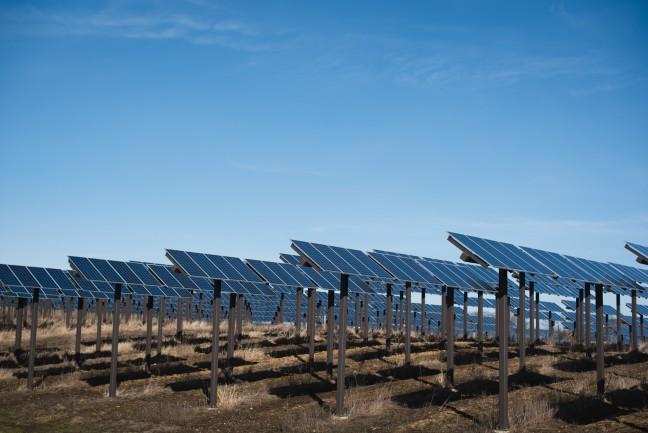The Trump Administration recently renewed a Joe Biden-era grant for sustainable energy in Wisconsin. The grant totaled $595 million for Dairyland Power Cooperative, a La Crosse-based cooperative that provides power across the Upper Midwest, according to Dairyland Power.
Funding sustainable energy is not only effective in helping to mitigate emissions reductions but can also create an energy system that is more resilient to the impacts of climate change, according to the Environmental Protection Agency.
Climate change advocacy group Clean Wisconsin’s Communications Director Amy Barrilleaux said the grant will help fund solar and wind projects across Wisconsin, Iowa, Minnesota and Illinois.
As the climate crisis continues to become more impactful, local and national companies are creating pathways toward sustainability. Mitigating factors in these plans can be public efficacy of the solution as well as funding, Salzwedel Distinguished Faculty Chair in Business and Regulation and Vilas Distinguished Achievement Professor Gregory Nemet said in an email statement to The Badger Herald.
“The Trump Administration’s confirmation of the grant to Dairyland Power is unequivocal good news for the energy transition in Wisconsin,” Nemet wrote in the statement. “Our state has some catching up to do in the transition to clean, affordable energy, and this plan for adding a gigawatt of clean generation helps. Demonstrating that rural communities can embrace wind and solar will be a key outcome of this initiative.”
Transitioning toward renewable energy has more than just environmental benefits. Wisconsin does not drill for oil, so importing it can be very expensive. In total, it costs Wisconsin $14 billion a year to import oil from other states and countries.
Solar and wind power are the cheapest forms of energy in Wisconsin, Barrilleaux said.
“Investing in clean, homegrown energy sources is becoming less and less expensive, and right now it is the cheapest way to get energy,” Barrilleaux said.
Additionally, the implementation of clean energy can contribute to the stabilization of income for family farms across Wisconsin, Barrilleaux said. Local governments’ solar or wind projects get $5,000 per megawatt every year. This could potentially generate millions of dollars to serve the counties and towns.
These funds can help create safer environments through renovations of municipal buildings, repairing roads and emergency response equipment, Barrilleaux said.
“I think people want to see Wisconsin’s rural areas protected and preserved, and the farming, you know, the family farm way of life continue, and we are going the wrong direction for that,” Barrilleaux said. “You know, we see dairy farms going under all the time.”
Beyond the economic benefits of switching to renewable energy, there are a plethora of health benefits as well, Barrilleaux said. There are intense health costs of burning fossil fuels as air quality diminishes, according to the Environmental and Energy Study Institute. Burning fossil fuels can cause asthma, cancer and heart disease.
The widespread implementation of solar can not only mitigate air quality issues as less air pollution is produced, but also save on public health costs. Each kilowatt hour of electricity generated from solar can save five to ten cents per kilowatt hour in public health costs.
Solar and wind are also much more land efficient than growing corn for ethanol, with solar producing 100 times more energy per acre than corn, said Barrilleaux.
There are a million acres dedicated to growing corn for ethanol in Wisconsin. By integrating solar into farmlands, soil is allowed to rest, and it can help bring back pollinators to areas that have been heavily tilled and even limit runoff, Barrilleaux said.
“We don’t necessarily need to do a million acres for ethanol when we can get too much more bang for our acre in solar,” Barrilleaux said. “And I think it’s just people, it takes a while to understand that there’s a fear of replacing cropland with solar.”
Moving toward solar and wind energy increases Wisconsin’s energy independence, which is a talking point for a lot of Republican lawmakers, Barrilleaux said.
Though Wisconsin and the Midwest at large are a great place for creating an independent energy grid, the benefits — economic, health and ecological — are not fully understood by the populace. Getting Wisconsinites to learn and speak out about the benefits of renewable energy can bring us closer to energy independence.
“And, you know, we do need Wisconsinites kind of saying, hey, we want this stuff,” Barrilleaux said. “We want these grants. We want the incentives for rooftop solar. We, you know, we want jobs. We want the manufacturing of wind and solar components here. We want all those things. And in order for that to continue, you know, people are going to have to speak up, but it’s been good to see that.”



